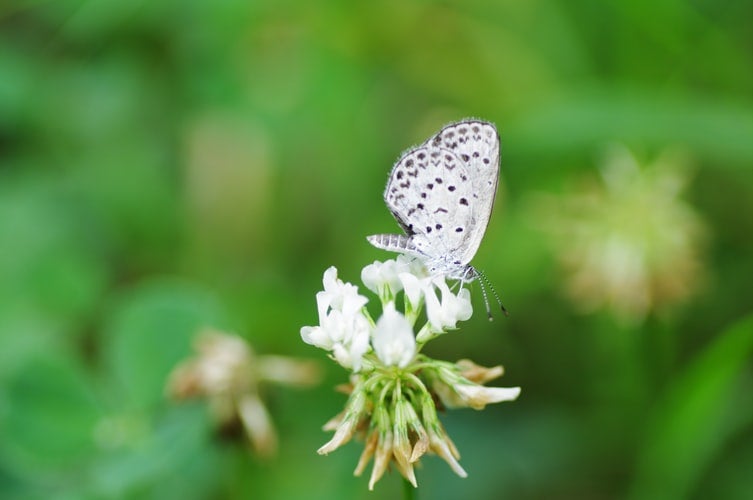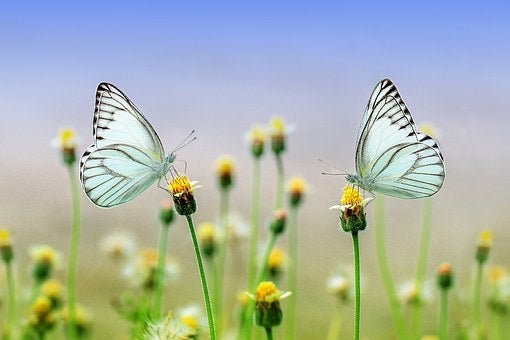8/30/2022
When we see things, we tend to believe what we see is an accurate reflection of the way things are. How many times have we seen or heard the phrase “seeing is believing”? When we see something, usually our automatic reaction is to believe it. Yet there is much evidence that this is an oversimplification, that what we see is not just a simple and accurate representation of the world around us. To begin with, far more information enters our eyes than we could ever process in conscious awareness. This information has to be filtered first, and this filtering occurs automatically without our even knowing that it is occurring. An estimated one gigabyte of information enters our eyes each second, and is filtered down to just a few bytes of relevant data. What is considered relevant depends on context and to what we are paying attention. You may have seen the video of people passing a basketball during which a gorilla walks through.
7/26/2022
Summer is here and with it an opportunity to appreciate all the bounties of nature. Trees are green, flowers are in bloom, birds and animals abound. The heat and humidity can be a barrier to spending time outside, and we may find we seek the comfort of air-conditioned space to escape them. My wife and I have been noticing this, and intentionally choosing to sit on our deck, in the shade. The place where we sit is right next to a hummingbird feeder, and we’ve been watching the hummingbirds. Hummingbirds are amazing creatures. They can beat their wings over 50 times a second, and are the only birds that can hover. They have very active metabolisms, and may consume up to half their body weight in a day, visiting as many as 1000-2000 flowers. They are travelers and can migrate up to 2000 miles, wintering in Mexico and Central America. They also have relatively large brains, about twice as large compared to their body weight as humans.
6/28/2022
Last month, the Monthly Musing addressed cultivating kindness for ourselves. This month, the focus is on cultivating kindness toward others. There are many benefits of doing both. Extending kindness to ourselves can help decrease the impact of negative experiences and emotions and improve our wellbeing. Extending kindness to others can have similar effects. Often when we are angry with someone or hold a grudge, we may be the ones who feel it the most. If we can acknowledge these feelings and intentionally respond with kindness we may feel better, as may the other person, and our relationships may improve. It may be helpful to revisit the definition of mindfulness that we use in the Mindfulness Center: Intentional present-moment nonjudgmental awareness with kindness. If we are not paying attention, when we interact with others we may react negatively and be critical and judgmental without even noticing it. This happens automatically, outside of our conscious awareness, based on how our past experiences influence our perceptions. These influences are pervasive.
Cultivating Kindness for Ourselves
5/26/2022
Cultivating kindness is central to practicing mindfulness. A definition of mindfulness that we use in the Mindfulness Center is “intentional nonjudgmental present moment awareness with kindness”. Why is kindness so important? Being with our own present moment experience can be hard, and practicing kindness toward ourselves can facilitate our ability to do this. There are times when we may be feeling stressed, or upset with ourselves for something we have or have not done, or we may be upset with someone else. If we pay attention to our present moment experience, we may notice that we are feeling anxious, or guilty, or angry. These can all be difficult emotions, and we may want to turn away, to distract ourselves, to do anything else but be with what we are feeling. Yet mindfulness is about being with whatever is arising in the moment, whether it is pleasant, unpleasant or neutral.
4/27/2022
A definition of mindfulness that we use in the Mindfulness Center is “intentional nonjudgmental present-moment awareness with kindness”. Why is there such an emphasis on paying attention to the present moment? Because every moment we experience is a present moment. Our lives unfold in the present moment. When the past occurred, it was in the present moment. When we think about the past, we are doing it in the present moment. The same is true of the future. Viewed from this perspective, all our experiences are in the present moment. It is easy to get caught up in wishing we could change something that occurred in the past. Obviously this is not possible, yet we can expend a lot of energy wishing we could.
3/25/2022
Spring, a season of renewal, has arrived. Renewal can mean to be renewed: to make like new; to restore to freshness and vigor. This spring has an added sense of renewal as we emerge from yet another Covid surge and hope once again that this may be the last. Spring can provide an opportunity to find ways to restore freshness and vigor to our lives. We might slow down to really notice what is occurring in the natural world, becoming aware of changes in the weather, of flowers or trees blooming, of the sounds of birds. We might take this opportunity to renew relationships with family and friends, especially those that may have been affected by Covid. We might renew our commitment to practicing mindfulness, perhaps setting aside time to meditate regularly.
Mindfulness and Emotional Intelligence Part 3
2/24/2022
Two recent Musings have been devoted to mindfulness and Emotional Intelligence (EI). EI refers to the ability to understand and manage our own emotions, as well as to recognize and influence the emotions of those around us. EI has been shown to be a powerful predictor of work performance, is an attribute of successful leaders, and can also be important in other settings. There are four main components to EI: self-awareness; self-regulation; social awareness; and relationship management. Relationship management is the topic of this column, and refers to using the awareness of our own emotions and those of others to optimally manage interactions. There are a number of competencies that contribute to relationship management in Daniel Goleman’s model of Emotional Intelligence.
1/24/2022
A new year has begun, one in which many of us hoped the COVID-19 pandemic would be behind us. Instead, we find ourselves in another surge, with more people having become infected than ever. Fortunately, illness caused by Omicron, the current predominant strain, seems less severe than prior variants. Despite this, because so many people have become infected, healthcare facilities are once again stressed, and those who work in them are having to care for more patients than ever, often with fewer staff due to healthcare workers becoming infected themselves as well as the number of people who have left the field during the pandemic. The amount of suffering caused by the pandemic has been and continues to be profound, affecting those infected by the virus, those caring for those who were infected, and those whose lives have been impacted in so many other ways.
12/13/2021
We all went into this pandemic together. Quarantine, washing hands, wearing masks, experiencing profound fear, increasing anxiety, showing compassion all became a collective consciousness for many of us. News reports flashed from around the world of people in isolation, trying to make the best of it. “Some Good News” with John Krasinski, videos of Italians singing from balconies, folks in NYC cheering on healthcare workers, photos of loved ones outside of nursing home windows waving to relatives locked inside were all broadcasted this time last year. Now that the pandemic dynamics have shifted with vaccine success, we are attempting to return to “normal” which has been anything but normal! Re-entry has been a solo experience for many of us, with each of us re-entering at different times and at different paces. This experience has felt isolating at times with new feelings of unexpected loneliness. In addition, feelings of uncertainty have arisen as we have tried to navigate this new normal, adding more stress to an already stressed-out baseline.
Mindfulness and Emotional Intelligence Part 2
11/22/2021
In last month’s Monthly Musing, I wrote about the relationship between mindfulness and the first two aspects of Emotional Intelligence (EI): self-awareness and self-management. These provide the basis for the other two components of EI: social awareness and relationship management. The former is the topic for this month. Social awareness refers to paying attention to others, especially their emotions. Being aware of others emotions is central to empathy, which has been defined as the capacity to understand and share another person's emotional experience. Empathy is the principal competence underlying social awareness, and can be cultivated by both paying attention to others when we are in relationship with them, really listening, and also paying attention to what we are feeling when we are in the presence of others. When we give someone else our full attention we can better connect with what they are feeling.










